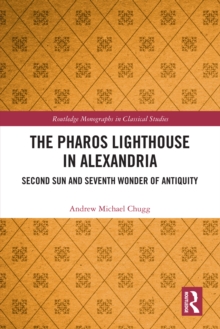
Travel, Geography, and Empire in Latin Poetry PDF
Edited by Micah Young Myers, Erika Zimmermann Damer
Part of the Routledge Monographs in Classical Studies series
Description
This volume considers representations of space and movement in sources ranging from Roman comedy to late antique verse, exploring how poetry in the Roman world is fundamentally shaped by its relationship to travel within the geography of Rome's far-reaching empire.
The volume surveys Roman poetics of travel and geography in sources ranging from Plautus to Augustan poetry, from the Flavians to Ausonius. The chapters offer a range of approaches to: the complex relationship between Latin poetry, Roman identity, imperialism, and travel and geospatial narratives; and the diachronic and generic evolutions of poetic descriptions of space and mobility. In addition, two chapters, including the concluding one, contextualize and respond to the volume's discussion of poetry by looking at ways in which Romans not only write and read poems about travel and geography, but also make writing and reading part of the experience of traveling, as demonstrated in their epigraphic practices. The collection as a whole offers important insights into Roman poetics and into ancient notions of movement and geographical space.
Travel, Geography, and Empire in Latin Poetry will be of interest to specialists in Latin poetry, ancient travel, and Latin epigraphy as well as to those studying travel writing, geography, imperialism, and mobility in other periods. The chapters are written to be accessible to researchers, graduate students, and advanced undergraduates.
Information
-
Download - Immediately Available
- Format:PDF
- Pages:240 pages
- Publisher:Taylor & Francis
- Publication Date:29/09/2021
- Category:
- ISBN:9781000427370
Information
-
Download - Immediately Available
- Format:PDF
- Pages:240 pages
- Publisher:Taylor & Francis
- Publication Date:29/09/2021
- Category:
- ISBN:9781000427370










